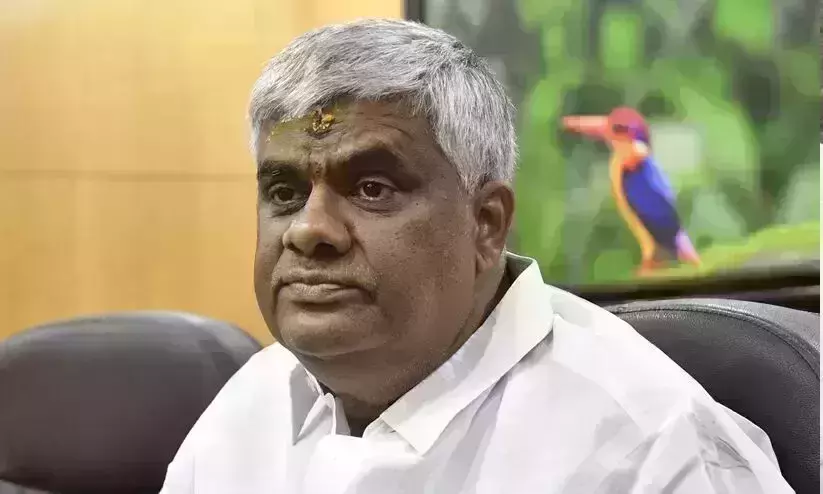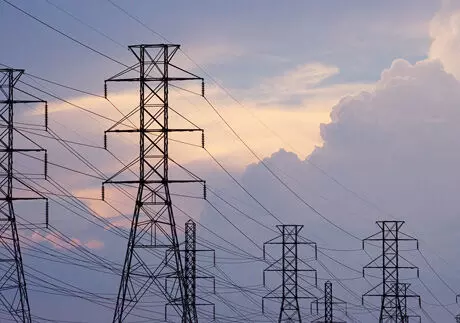
Concerns about the Electricity Amendment Bill
text_fieldsThe Electricity Amendment Bill that Narendra Modi government sees as a piece of prestigious legislation, was introduced in the Lok Sabha last Monday. The bill has not been passed yet due to opposition resistance, and it has been referred to the Subject Committee for detailed study due to the Opposition's demand. Subject Committees charged with deliberating on issues concerning relevant areas, have been almost jobless since the BJP came to power. The NDA's method until now has been to pass even such laws as would determine the fate of the country without discussing them, but by force of the majority. During the first term of the Modi government, the game was to issue ordinances due to the lack of a majority in the Rajya Sabha. In situations where ordinances could not be issued, the government pushed through its agenda by making laws as money bills. Now that the government has a majority in both the Houses, there is no need for such games. The Centre can introduce, pass, and get the President's assent on the legislation that is intended to be implemented with ease. There is no need to worry about opposition disagreements or the opinions of subject experts. Parliamentary debates and subject committee studies have been absent.
Under such circumstances, the fact that the Electricity Amendment Bill was referred to the Subject Committee has generated curiosity. The most important provisions of the new bill are to increase private participation in the power supply sector. Private participation in the field of power generation was further liberalised in the Electricity Bill passed by Atal Bihari Vajpayee in 2003 itself. The proposed amendment bill will facilitate private participation in the electricity supply sector too. The government argues that increasing privatisation will set the stage for competition and consumers of the country will receive better service. As an example, the government is citing the changes brought in the mobile phone and civil aviation sectors by privatisation as examples.
There are sections in India who argue that no service sector should be privatised and that it should remain under public ownership. The leftists are of this opinion. However, the Congress cannot take such a stand. It was during their tenure that the process of privatisation began in India. At the same time, Congress is opposing the Electricity Amendment Bill. The power distribution sector is currently monopolised by the state-owned electricity boards of the respective states. People have no chance to choose which has made the sector neither competitive nor diverse. The ruling party at the Centre argues that new players should be allowed to enter the field and provide the best service to the people.
At this stage, the Opposition has the responsibility to educate people on the problems that accompany the proposed Bill. The most fundamental problem with the Bill is the very manner it was introduced. According to our constitution, electricity is a subject in the concurrent list. It is an area in which the State and the Centre have equal responsibility and authority. Consulting the states and obtaining their consent while enacting legislation in this area is crucial. With the Electricity Amendment Bill becoming law, state electricity regulatory boards will become irrelevant. . The power to fix electricity tariffs will be vested solely in private companies. It is not at all desirable to arbitrarily make laws on matters in the concurrent list in such a way as to encroach upon the powers of states. This is the most important political issue related to the electricity bill, and needs to be raised aloud with utmost importance. It is commendable that Kerala has raised this matter.
During the farmers' struggle, one of their major demands was that the Electricity Amendment Bill should be discarded. They were protesting that the subsidies and benefits to the agriculture and rural sector would cease to exist. That fear still prevails. There is a concern that private companies often focus only on the cities because they churn out more profit and villages will be ignored. There is also the criticism against handing over the distribution networks established by various state electricity boards with taxpapers' money to private companies. It is not difficult to figure out what kind of competitiveness the Centre intends to achieve in the current situation where only one or two businessmen close to the Narendra Modi government have monopolised the service sector.












